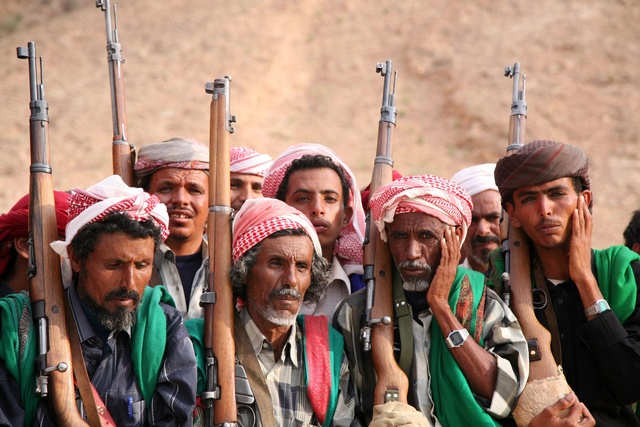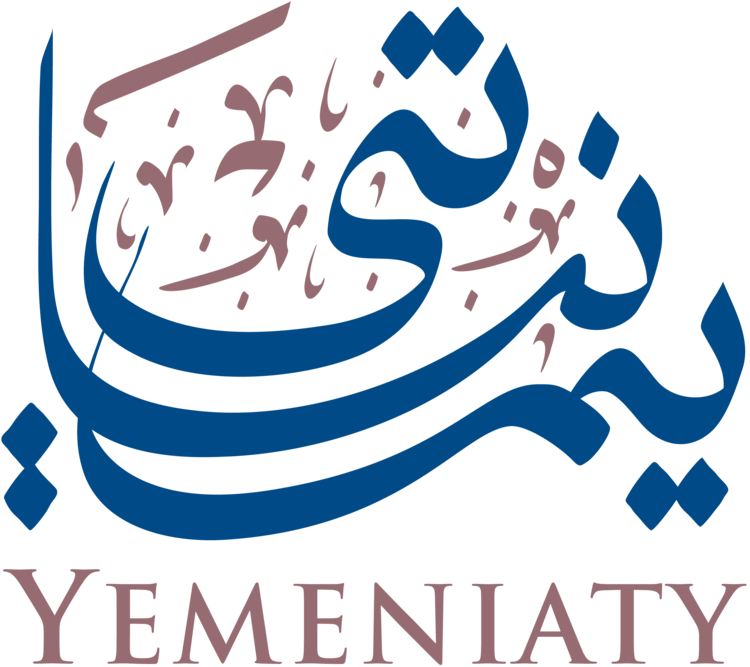Part II of II: Continued interview with Nadwa Al Dawsari, Click Here for Part I.
Q: Last May several newspapers reported that 15 people died in Yemen due to a tribal conflict over donkeys. Click here for the article. Please Comment.
 |
| Image via biyokulule.com |
Q: Now with the rise of salafism, tribes and their systems can be attacked as "unislamic" meaning that the prophet mohammed brought islam to eliminate all forms of 8abaliyah. first, who do you think is more likely to survive in Yemen, tribes or salafism? Second, how can tribalism overcome Salafism?
A: First of all I don’t think that Salfism is on the rise in Yemen. On the contrary I think Salafism in its traditional sense has gradually weakened over the past 20 years and that is mainly because Islamists in Yemen, unlike in other Arab countries, have been actively engaged in the political process which made them more willing to compromise and work with others. I think it is important though not to put “Islamists” in one category. You have Muslim brothers, you have Salafis, you have Wahabis, and others. Some are more moderate and open minded than others. Even within the salafi movement in Yemen you will find different groups, some of them are more moderate and these groups have their own disagreements and conflict sometimes.
I don’t think Islamists in Yemen think that the Qabeelah has to be eliminated. Most of those Salafi leaders belong to tribes and are proud of it. Even the most extreme group of Alqaeda or Ansar Ashariyah does not speak negatively about the tribes and tribal Urf. I know Salafi leaders who are actively engaged in resolving conflicts through tribal traditions, Urf.
I don’t think we should fear a “rise” for Salafis or conservative Islam in Yemen. Yemenis took to the street to demand freedom and justice and thousands died for it. We should continue the fight. If Islamsist come to power then we should hold them responsible to the democratic values they subscribed to. It is not going to take us anywhere if we continue to label them and reject them because they are “Salafis” or ‘Islamists” for this matter. Our fight should be to establish and strengthening the democratic values that we fought for and keeping those in power accountable whether they are Islamists or leftists or liberals or others. By rejecting Islamists we violate these same values that we have fought for.
Q: “A tribe in Yemen can be defined as a social organization that gains its legitimacy from a set of traditional rules that constitutes a social contract among the tribe’s members as well as between them and their sheikhs and other tribes. This social contract, or Customary Law, governs public affairs, protects common interests, and extends protection and economic support to tribal members.”You begin your paper by explaining that Saleh agreed to a step down while Hadi leads during the transitional period. This process was facilitated by the GCC. On the ground, the Yemeni sheikhs were divided; some supported Saleh and others wanted him out. In this particular scenario, conflict resolution via the tribes failed. What guarantees that in the future the sheikhs will be able to agree on other conflicts in order to protect the common interest?
A: First of all I don’t think that Salfism is on the rise in Yemen. On the contrary I think Salafism in its traditional sense has gradually weakened over the past 20 years and that is mainly because Islamists in Yemen, unlike in other Arab countries, have been actively engaged in the political process which made them more willing to compromise and work with others. I think it is important though not to put “Islamists” in one category. You have Muslim brothers, you have Salafis, you have Wahabis, and others. Some are more moderate and open minded than others. Even within the salafi movement in Yemen you will find different groups, some of them are more moderate and these groups have their own disagreements and conflict sometimes.
I don’t think Islamists in Yemen think that the Qabeelah has to be eliminated. Most of those Salafi leaders belong to tribes and are proud of it. Even the most extreme group of Alqaeda or Ansar Ashariyah does not speak negatively about the tribes and tribal Urf. I know Salafi leaders who are actively engaged in resolving conflicts through tribal traditions, Urf.
I don’t think we should fear a “rise” for Salafis or conservative Islam in Yemen. Yemenis took to the street to demand freedom and justice and thousands died for it. We should continue the fight. If Islamsist come to power then we should hold them responsible to the democratic values they subscribed to. It is not going to take us anywhere if we continue to label them and reject them because they are “Salafis” or ‘Islamists” for this matter. Our fight should be to establish and strengthening the democratic values that we fought for and keeping those in power accountable whether they are Islamists or leftists or liberals or others. By rejecting Islamists we violate these same values that we have fought for.
Q: “A tribe in Yemen can be defined as a social organization that gains its legitimacy from a set of traditional rules that constitutes a social contract among the tribe’s members as well as between them and their sheikhs and other tribes. This social contract, or Customary Law, governs public affairs, protects common interests, and extends protection and economic support to tribal members.”You begin your paper by explaining that Saleh agreed to a step down while Hadi leads during the transitional period. This process was facilitated by the GCC. On the ground, the Yemeni sheikhs were divided; some supported Saleh and others wanted him out. In this particular scenario, conflict resolution via the tribes failed. What guarantees that in the future the sheikhs will be able to agree on other conflicts in order to protect the common interest?
A: I think Yemeni sheikhs were divided not on tribal terms but on personal terms. You will find cases in which a sheikh supported Saleh but his brother who is another sheikh supported the revolution. Again, a sheikh’s support to a political player doesn’t mean that his tribe or even family support that same political player. Things don’t work that way in tribal areas anymore because of what I mentioned earlier.
Conflict resolution is an effort that sometimes succeeds and sometimes fails. This is the reality and happens everywhere in the world and you will see many examples of that. Take the conflict in the middle east for example. All efforts to resolve it completely have failed despite the fact that those who were involved in the mediation are experienced sophisticated world diplomats who don’t have any tribal background. What I meant in my paper is that some tribal sheikhs have long experience in successfully mediate and resolve conflicts including during the political turmoil in 2011. They are perceived neutral so why not use them to help promote dialogue and building consensus during the transition? They are an indigenous capacity that I think should be capitalized on.
Q: How does the suicide bombing last month in Jaar’s village funeral support your theory on tribes in Yemen and their relationship with ideological groups like Al-Qaida?
Conflict resolution is an effort that sometimes succeeds and sometimes fails. This is the reality and happens everywhere in the world and you will see many examples of that. Take the conflict in the middle east for example. All efforts to resolve it completely have failed despite the fact that those who were involved in the mediation are experienced sophisticated world diplomats who don’t have any tribal background. What I meant in my paper is that some tribal sheikhs have long experience in successfully mediate and resolve conflicts including during the political turmoil in 2011. They are perceived neutral so why not use them to help promote dialogue and building consensus during the transition? They are an indigenous capacity that I think should be capitalized on.
Q: How does the suicide bombing last month in Jaar’s village funeral support your theory on tribes in Yemen and their relationship with ideological groups like Al-Qaida?
A: I think the issue of suicide bombing might be a complex one. But what I take from this is that communities in Yemen cannot take care of themselves as it used to be, young people are vulnerable to engaging in conflicts and the tribal system can no longer guarantees the safety and security of its own people. It is time to think of a third way where communities in their own capacity work with emerging state institutions to tackle the issue of extremism and other major challenges that Yemeni communities and Yemen in general face.
A: Well, let’s look at a more positive piece of information. A research that was conducted by Dar Assalam local NGO indicated that 90% of the conflicts in tribal areas are prevented and resolved through the tribal system. There are single incidents here and there of violent conflicts triggered or caused by disagreements over minor issues but that is not because the tribal men love to shoot each other or fight over everything. It is because of a complexity of issues. These areas have no state presence, very corrupt government institutions, deteriorating indigenous values, a bulge of unemployed youth who have poor education and are frustrated because of lack of opportunities, scarce resources and lack of to no development services and on top of that plenty of guns. I think with this recipe I can only praise the tribes for maintaining a reasonable level of order in their areas and taking over the responsibility to provide what state institutions were supposed to provide.



